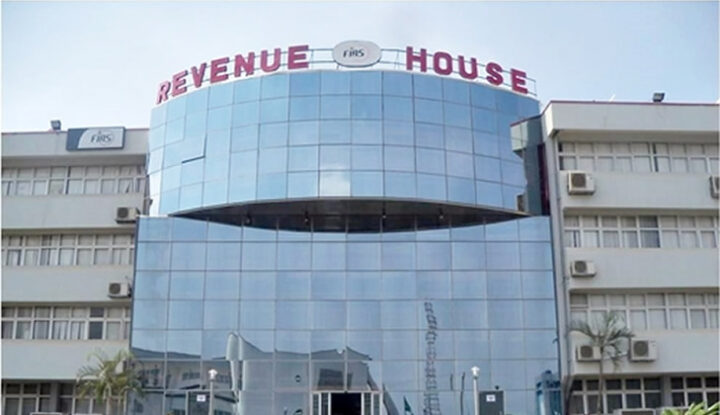The Federal Inland Revenue Service (FIRS) has refuted claims circulating in parts of the public sphere suggesting that it granted monopoly rights to Xpress Payments in the nation’s revenue collection process. The agency described the reports as misleading, insisting that no single organisation has exclusive control or preferential access to government revenue channels under its supervision. It stressed that Nigeria’s tax administration framework is built on transparency, competition and accountability, making such a monopoly both illegal and impossible under current regulations.
According to the Service, the misinformation appears to stem from a misunderstanding of the roles played by various payment service providers involved in tax remittances. The FIRS explained that in the course of modernising revenue collection, it engages several licensed companies approved by the Central Bank of Nigeria (CBN) to provide technology-based solutions for seamless tax payments. These companies, it noted, operate independently and in competition with one another. The agency emphasised that Xpress Payments is only one of many service providers participating in the ecosystem, and therefore has no exclusive privilege in processing government revenue on behalf of the FIRS.

The Service stated that the effort to digitalise revenue collection aligns with global best practices aimed at eliminating leakages, improving convenience for taxpayers and ensuring real-time monitoring of inflows. As such, the FIRS clarified that any suggestion of a single entity having control over these processes contradicts the spirit and structure of the reforms it is implementing. It reiterated that its partnerships are governed by clear operational guidelines, technical requirements and performance benchmarks applicable to all service providers without exception.
The FIRS also highlighted that its collaborations undergo rigorous due diligence and regulatory checks. Payment companies integrated into the tax system must meet strict standards for financial integrity, security, and technological capacity before being allowed to operate. The agency noted that no firm, including Xpress Payments, receives preferential treatment in evaluation, approval or operational supervision. It stressed that the goal of the agency is to guarantee efficiency, not to promote monopolies or restrict competition.
Responding further to the rumours, the FIRS explained that recent changes to the tax payment interface have created confusion among some stakeholders. These adjustments, it said, were introduced to enhance compliance, simplify payment procedures and create a unified system for tracking tax receipts. The Service acknowledged that the shift to more integrated platforms has led some to assume that a single private company is being favoured. However, it insisted that the enhancements were designed in collaboration with multiple service providers, not one.
The agency urged Nigerians—especially taxpayers, financial institutions and businesses—to rely on official communication channels for accurate information about tax processes. It warned that misleading claims could undermine public trust and generate unnecessary tension among stakeholders who rely on efficient systems to meet their tax obligations. By dismissing the allegations, the Service reiterated its commitment to upholding fairness and transparency in every tier of its operations.
In addition, the FIRS reaffirmed that it remains focused on improving tax collection performance to support government revenue needs at a time when the country is pursuing ambitious economic reforms. The Service said digital solutions have played a critical role in raising efficiency, expanding the taxpayer base and reducing dependency on manual procedures that previously enabled revenue leakages. It noted that these improvements are sustainable only when the system remains open to multiple providers who bring innovation, competition and accountability.
The FIRS also addressed concerns raised by some industry players who feared that a monopoly in revenue collection would stifle innovation and drive up operational costs. The agency reassured stakeholders that the regulatory framework governing payment processing is designed to prevent precisely such outcomes. It emphasised that the Nigerian financial system thrives on competition and diversity of service providers, both of which ensure higher efficiency and better pricing for users. Consequently, the agency stated, no single entity can dominate a process as critical as government revenue collection.
The Service further encouraged payment companies to continue improving their infrastructure, customer support and technology offerings in order to compete favourably in the expanding digital tax ecosystem. It noted that increased private-sector participation is essential for modernising Nigeria’s tax administration and raising non-oil revenue, which has become even more important amid ongoing fiscal pressures.
By firmly denying the allegations and restating its operational principles, the FIRS sought to reassure Nigerians that it remains committed to fairness, efficiency and transparency in administering tax policies. The agency maintained that digital transformation will continue to guide its efforts, but such transformation will not come at the cost of competition or accountability. It urged all stakeholders to focus on cooperation and compliance as the country works toward building a more robust and efficient revenue system capable of supporting long-term economic growth.
Support InfoStride News' Credible Journalism: Only credible journalism can guarantee a fair, accountable and transparent society, including democracy and government. It involves a lot of efforts and money. We need your support. Click here to Donate
